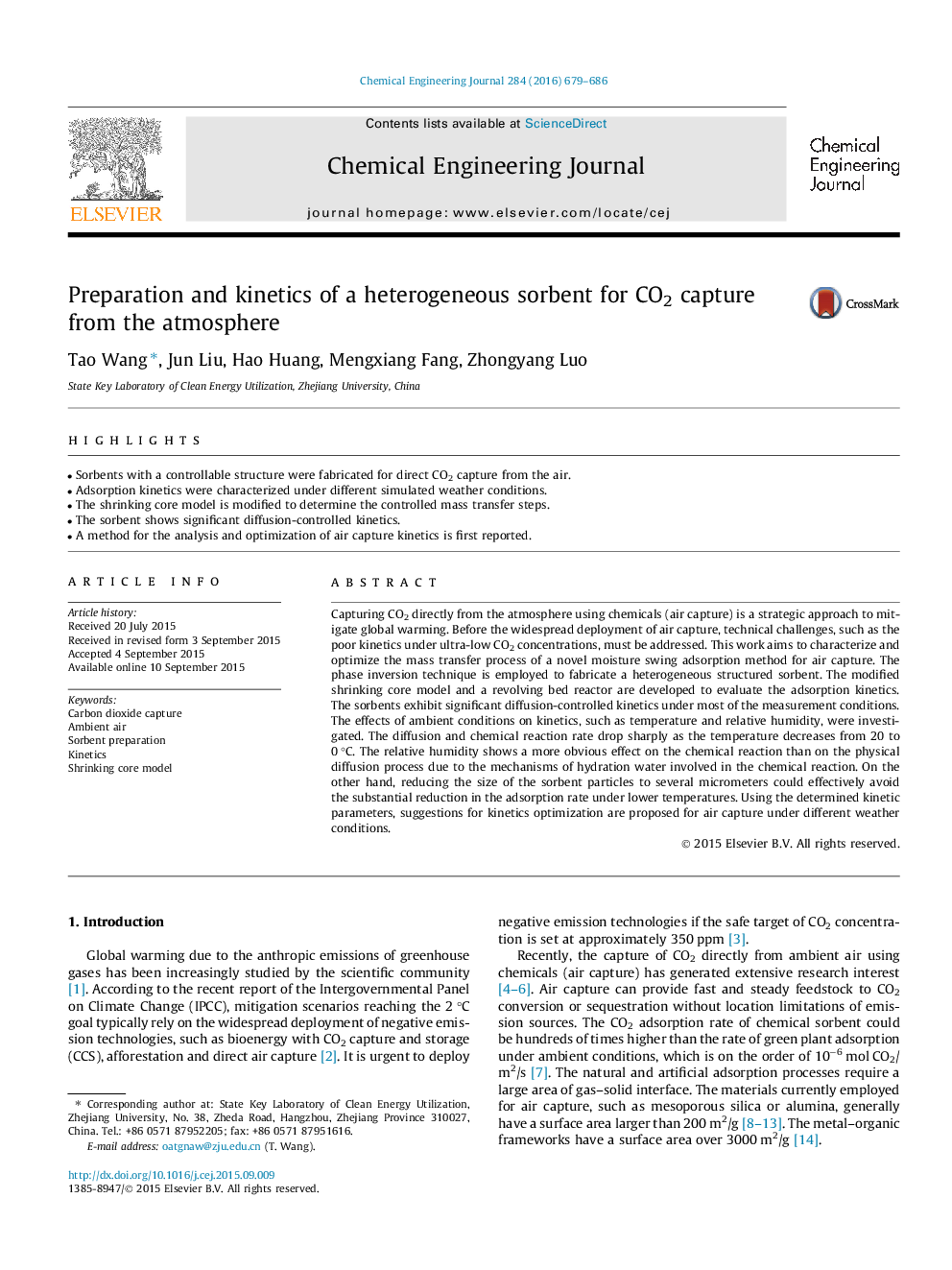| Article ID | Journal | Published Year | Pages | File Type |
|---|---|---|---|---|
| 145995 | Chemical Engineering Journal | 2016 | 8 Pages |
•Sorbents with a controllable structure were fabricated for direct CO2 capture from the air.•Adsorption kinetics were characterized under different simulated weather conditions.•The shrinking core model is modified to determine the controlled mass transfer steps.•The sorbent shows significant diffusion-controlled kinetics.•A method for the analysis and optimization of air capture kinetics is first reported.
Capturing CO2 directly from the atmosphere using chemicals (air capture) is a strategic approach to mitigate global warming. Before the widespread deployment of air capture, technical challenges, such as the poor kinetics under ultra-low CO2 concentrations, must be addressed. This work aims to characterize and optimize the mass transfer process of a novel moisture swing adsorption method for air capture. The phase inversion technique is employed to fabricate a heterogeneous structured sorbent. The modified shrinking core model and a revolving bed reactor are developed to evaluate the adsorption kinetics. The sorbents exhibit significant diffusion-controlled kinetics under most of the measurement conditions. The effects of ambient conditions on kinetics, such as temperature and relative humidity, were investigated. The diffusion and chemical reaction rate drop sharply as the temperature decreases from 20 to 0 °C. The relative humidity shows a more obvious effect on the chemical reaction than on the physical diffusion process due to the mechanisms of hydration water involved in the chemical reaction. On the other hand, reducing the size of the sorbent particles to several micrometers could effectively avoid the substantial reduction in the adsorption rate under lower temperatures. Using the determined kinetic parameters, suggestions for kinetics optimization are proposed for air capture under different weather conditions.
